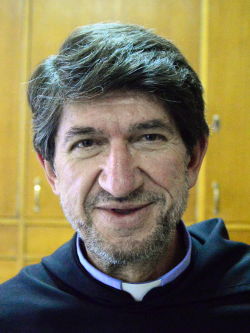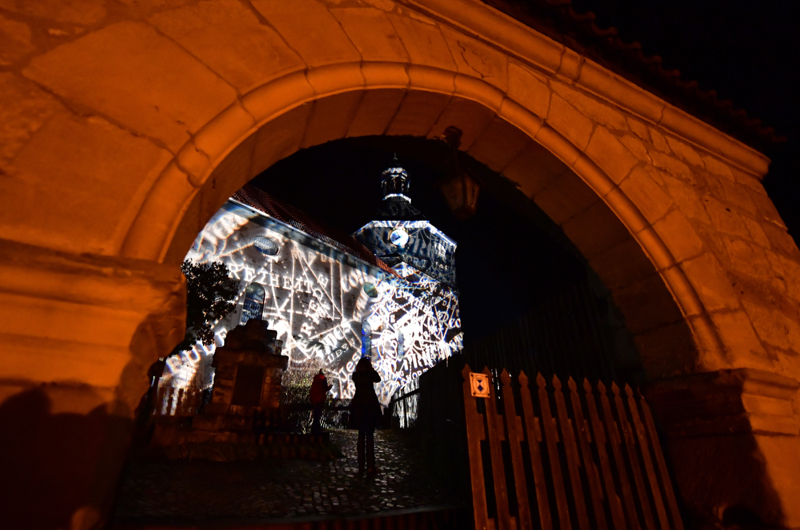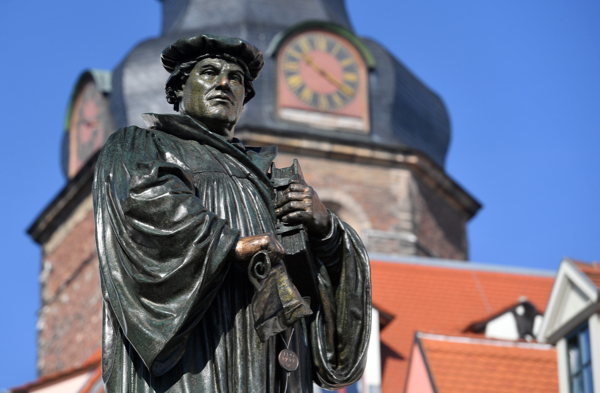The head of the Augustinians has urged all members to commemorate but not go so far as to celebrate the life of the order's best-known rebels, Martin Luther.
Fr Alejandro Moral Antón OSA, the Prior General, has written a strongly-worded letter to the brothers and sisters of the mendicant order, formally founded in the 13th century, marking the 500th anniversary of the Reformation.
Fr Antón writes that the Order of St Augustine should recognise "in perhaps a small way" the anniversary of the beginning of the Reformation which started with Martin Luther's public exposition of his 95 theses on indulgences, in Wittenberg on October 31, 1517. The Order is also supporting a congress on the Reformation in Rome next month.
He says Luther was responsible for promoting "a true religious crisis" that "brought about the rupture of Western Christianity".
Luther "laid the foundations not only of secularism but also of the process of secularisation and the birth of a new Europe", he adds. "We cannot forget that Martin Luther (1483-1546) was an Augustinian.
Martin Luther abandoned his law studies and entered St Augustine's Monastery in Erfurt in 1505 when he was 21 after he was nearly hit by a bolt of lightning. Ten years later he was provincial vicar of Saxony and Thuringia and soon after that he wrote the letter to his bishop protesting the sale of indulgences and published his 95 theses.

"All sources point out that he was a pious, trustworthy and fervent monk," writes Fr Antón." Until 1521 he continued to sign his name "Martin Luther, Augustinian" and wore his religious habit until 1524.
But it is also the case that Luther not only abandoned the order but abhorred religious life, rejected ascetic practices and piety, rejected praying the breviary and other obligations, radically altered sacramental theology, condemned the vows and promoted the abandonment and the mass exodus of vowed religious.
"The damage done to the Order and to religious life in Germany was enormous. Luther was our brother for a time and shared our charism, but he himself stood outside the Order with his choices, his initiatives, and his decisions."
The order has no reason to celebrate the 500th anniversary of the beginning of the Reformation, but does have reason to commemorate it, says the Prior. He describes the breakup of the Church is an expression of failure for all Christians.
While conceding his personal qualities, Fr Antón also notes Luther's obstinacy, intolerance and vehemence. "Luther used biting expressions against those who opposed him, becoming abusive and rude. Often, he was vexatious and offensive, leading to slander," he writes. "His fixation on the figure of the Pope is significant, evolving from reverential obedience to animosity and abhorrence, to eventual hatred in his later years. His exaggerated insults and aggressions toward the Church of Rome (papist, according to the particular terminology) are truly sad."
He also notes Luther's "visceral revulsion of scholasticism" and more. "Tormented in his youth by the theme of salvation, he found his tranquility and joy in the principle of justification by faith."
The consequences of Luther's mode of thought included the denial of free will, the rejection of the Mass as a sacrifice, to the denial of the ministerial priesthood, the demolition of the magisterium and of the ecclesiastical hierarchy and to the demonisation of the papacy.
Yet Luther was "surprisingly servile" to the protestant princes and also present in him were nationalism and antisemitism.
Luther needs to be better-known and studied by Augustinians, the Prior says.
The letter was sent this week to the order's 2576 friars in 420 communities in 45 countries, on all continents except Antartica. The order is growing in Africa and Asia although going down in numbers in Europe and North America
On the female side, the letter went to all 834 cloistered sisters in 77 monasteries, mainly in Spain and Italy.

An audiovisual light and sound installation entitled LuthERleuchtet 2017 in the Luther Church in Mohra, Germany, the birthplace of Luther. Pic: PA
See also The Tablet's series on the Reformation:
Martin Luther’s new religion: Luther’s teaching on justification by faith alone demanded a complete reshaping of Christianity by Richard Rex
Disentangling the myths of the Reformation by Alexandra Walsham
The accidental Reformation: Did Luther's challenge to church authority lead to our secularised society? by Brad Gregory



 Loading ...
Loading ...